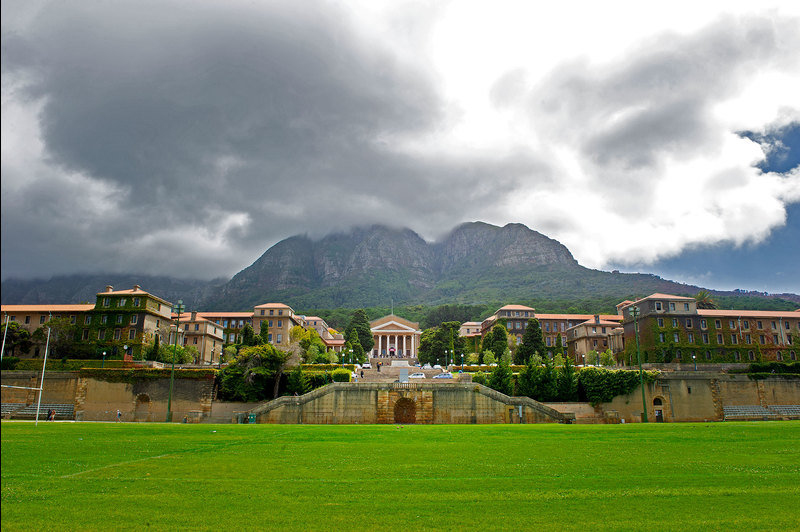Lockdown brings unintended ‘positive’ environmental impact
22 April 2020 | Story Niémah Davids. Photo Lerato Maduna. Read time 4 min.
The coronavirus (COVID-19) pandemic has severely impacted the University of Cape Town (UCT), but on Earth Day UCT’s director of environmental sustainability, Manfred Braune, shares some of the positive effects of lockdown on the environment.
On Wednesday, 22 April, 50 years ago, millions of people mobilised to call for greater protection of planet earth. Since then, the day has been marked on the global calendar as Earth Day. Today, the annual event is celebrated in many countries around the world and reaffirms the globe’s support for environmental protection.
Celebrations this year are taking a non-traditional, digital form. As a result of COVID-19, more than two billion people around the world are on lockdown, which means that events and large gatherings are prohibited. Celebrating Mother Earth, however, must continue.
“Now, given the current global context, it’s an important time for us to celebrate the importance of our sensitive planet and how we interact with it,” said Braune.
“Let’s celebrate Earth Day by taking some time to reflect on the things we are doing differently now because of lockdown and which of these things have positively impacted the environment and which of these changes we can perhaps carry with us into a post-lockdown world.”
Environmentally conscious
Like most parts of the country, UCT has been a ghost town for the past few weeks.
“The impact of COVID-19 has made us even more conscious about the importance of paying very careful attention to environmental factors.”
According to Braune, while lockdown has been difficult for many sectors, including higher education, it has yielded a range of interesting, unintended positive effects on the environment. This, he said, includes significantly reduced electricity and water consumption (by more than 50%), near zero vehicle and air travel emissions, and an almost complete reduction in waste generated on campus.
“The impact of COVID-19 has made us even more conscious about the importance of paying very careful attention to environmental factors and how sensitive we as humans are to these,” he said.
“UCT is committed now, if not more than ever, to its carbon emissions reduction targets of being a net zero carbon campus by 2050 and is committed to remaining a leading research institution on climate change.”
The university recently published its 2018 Carbon Footprint Report, which demonstrates its commitment to radically reducing its carbon footprint.
A change in behaviour
Braune said that for UCT the lockdown should also be seen as an opportunity to reflect on alternative ways of doing things in order to yield positive, long-term effects on the environment.
This, he said, could include reviewing air travel schedules, examining which courses are better suited for online learning and looking into what research can be conducted effectively off campus.
“These are activities that could reduce our carbon, waste and water footprint as a campus. These reflections will test our ‘business as usual’ and will influence UCT’s existing environmental sustainability strategy.
“The survival of the human race has perhaps never been as apparent as now, and it is in this heightened context that we celebrate the 50th Earth Day and this beautiful and complex planet we live on.”
 This work is licensed under a Creative Commons Attribution-NoDerivatives 4.0 International License.
This work is licensed under a Creative Commons Attribution-NoDerivatives 4.0 International License.
Please view the republishing articles page for more information.










